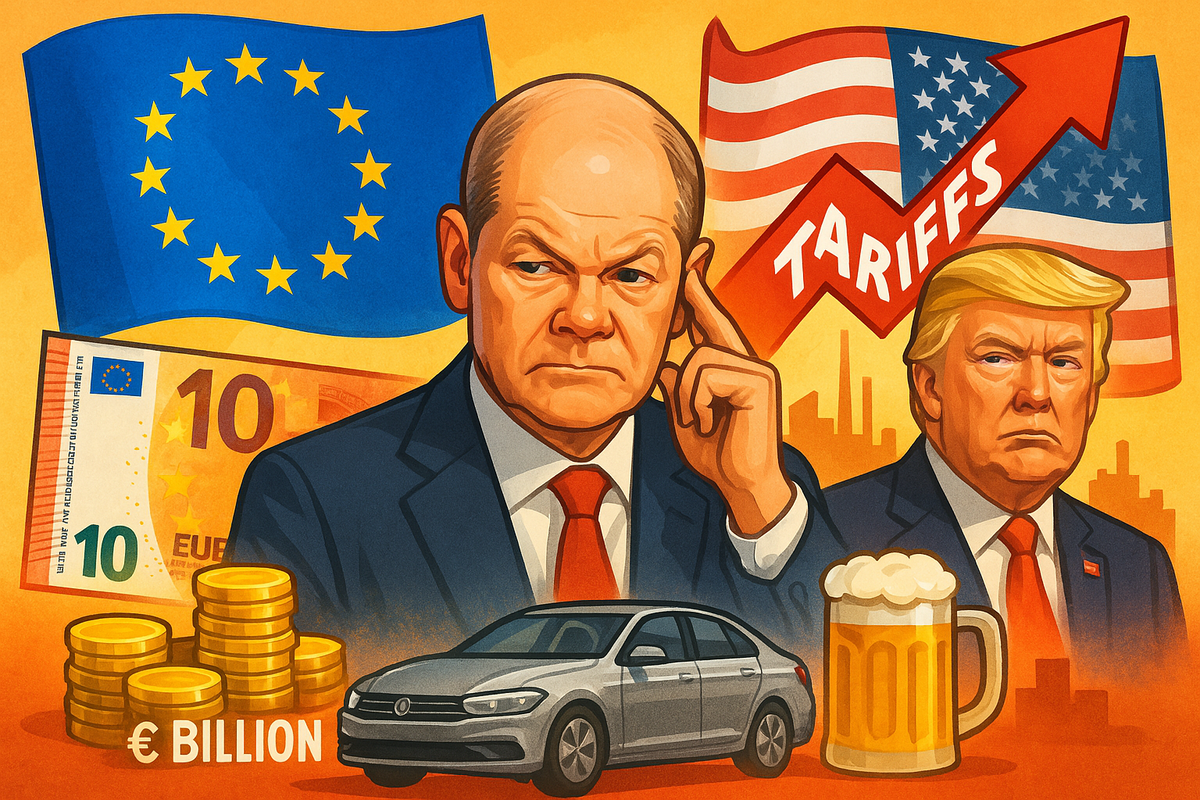
Vancouver, BC - April 11, 2025 - Germany is in full crisis mode, and no, it’s not over beer purity laws or football results. This time, it’s tariffs. U.S. President Donald Trump has lobbed a 20% tariff grenade at European exports, sending German carmakers, beer barons, and bureaucrats into an economic tailspin.
In response, the European Union—spearheaded by Germany—has rolled out a swift counter: a €10 billion emergency fund aimed at shielding small and medium-sized enterprises (SMEs) from the fallout. It’s a financial turbo boost, offering low-interest loans and grants to help businesses digitize, pivot markets, and cushion the tariff blow.
What Happened?
Last week, Trump’s tariffs officially hit, triggering fears of a full-blown trade war. From Munich’s manufacturing boardrooms to the corridors of Brussels, alarms are ringing louder than an Oktoberfest brass band.
Why It Matters
Germany’s economy runs on exports—especially to the U.S., which last year bought €161 billion worth of German goods. With trade disruptions threatening everything from auto sales to pretzel machines, leaders are scrambling to prevent a recession-sized pothole in the road.
The Heavyweights Speak
German Chancellor Olaf Scholz says the tariffs are an “attack” on a trading system that brought global prosperity and that America itself helped design. Friedrich Merz, Germany’s chancellor-in-waiting, labeled the tariffs “urgent” and called for EU unity. Economy Minister Robert Habeck struck a defiant tone, confident that Europe’s collective economic weight would make Trump blink in this high-stakes staring contest.
What’s the Impact So Far?
German giants like Volkswagen are already adjusting by hiking U.S. prices, passing the cost directly to American consumers. (Spoiler: Your next Audi just got pricier.) Meanwhile, SMEs face a more uncertain road, with the EU’s fund acting as a temporary lifeline.
Two days ago, European Union member states also voted to approve retaliatory tariffs on $23 billion US in goods in response to U.S. President Donald Trump's 25 per cent tariffs on imported steel and aluminum. The tariffs will go into effect in stages, with some on April 15 and others on May 15 and Dec. 1. The EU executive commission didn't immediately provide a list of the goods Wednesday.
Analysts Weigh In
Experts warn the German economy—already a bit wobbly—could skid further. The new EU fund aims to streamline support for exporters, fast-track approvals, and encourage diversification. Still, with negotiations teetering and political pressure mounting, it’s unclear whether this bold move will steady the ship—or just delay the inevitable.
Bottom Line
Germany’s trying to keep calm and carry on, but the economic storm clouds are gathering. As one analyst joked, “This trade war’s more confusing than a Kafka plot twist.”
Disclaimer:
This story could be outdated faster than you can say “Wirtschaftsminister.” International trade, under the leadership of US President Trump, moves quickly—and unpredictably.
#Germany Trade News #EU Tariff Response #Trump Tariffs #German Economy #Trade War 2025 #EU vs US #Export Crisis #Berlin Business Buzz #Elke Porter
Connect with Elke at Westcoast German Media or on LinkedIn: Elke Porter or contact her on WhatsApp: +1 604 828 8788
